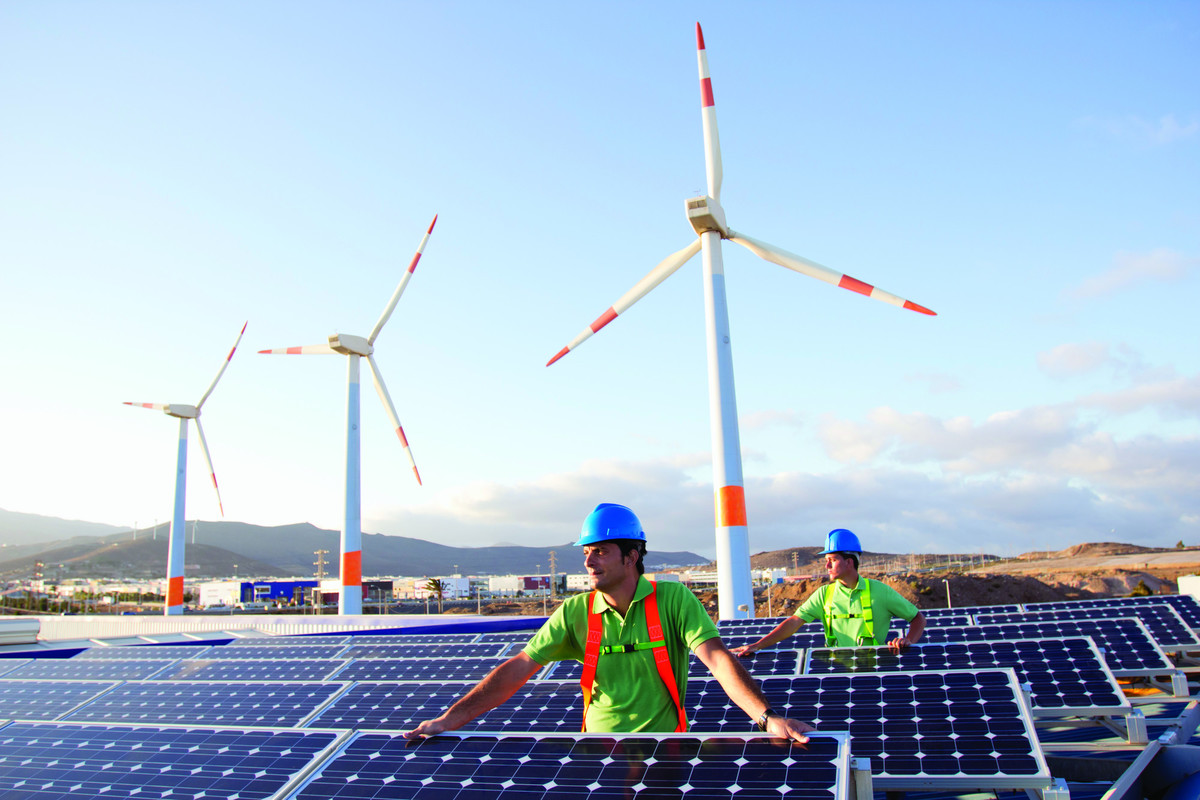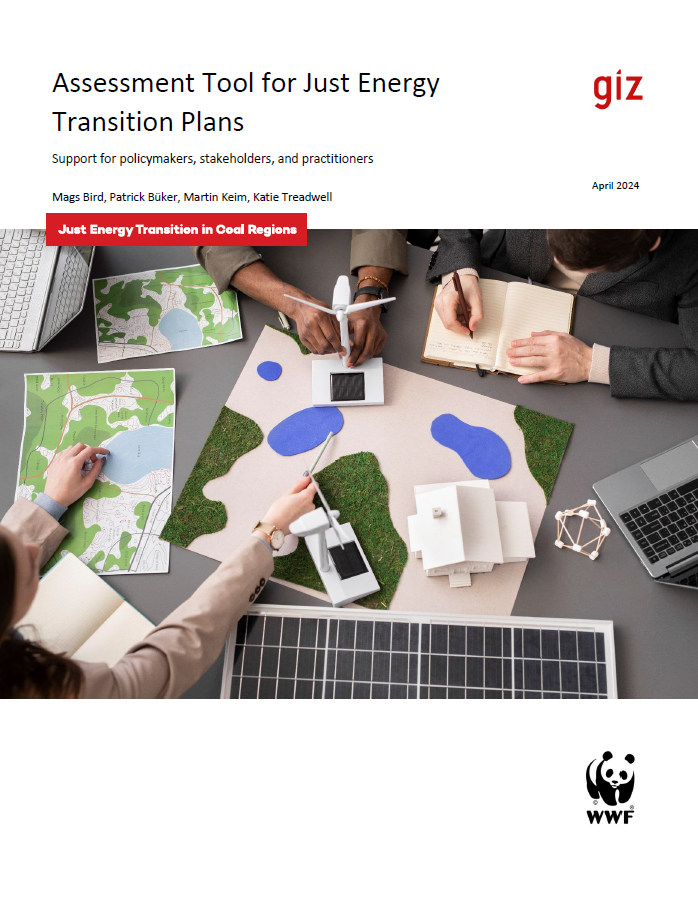
On April 24, 2024, the Expert Exchange “Sustainability by Design: Assessment tool for just energy transition plans” convened experts from WWF Europe, the Institute for Essential Services Reform (IESR), an energy and environment think tank based in Indonesia, and Deutsche Gesellschaft für Internationale Zusammenarbeit (GIZ) to discuss the pivotal role of just energy transition plans in facilitating a just and effective energy transition. A new assessment tool for just energy transition plans launched at the event will provide practical support to policy-makers, stakeholders, and practitioners as they draft new or revise existing plans based on a comprehensive set of sustainability criteria.
Research insights
Mags Bird from WWF Europe started the session by explaining the relevance of the European Green Deal and Just Transition Mechanism policy framework, which requires EU regions to submit territorial just transition plans (TJTPs) in order to apply for funding. In 2021 WWF Europe developed a tool and scorecard to assess the sustainability of the TJTPs, which was successful in shaping the debate by enabling comparisons between different regions’ transition plans to encourage overall ambition. The scorecard has created the opportunity to recognise positive aspects in the plans, while highlighting weak areas and identifying common areas of difficulty.
Drawing on the experience at the European level, Martin Keim and Patrick Büker from GIZ shared how the original WWF tool was adapted by carrying out an international peer review to tailor it to the needs and contexts of low- and middle-income countries. This involved realigning and redrafting the tool’s eleven core principles, as well as reconsidering the indicators and fulfilment criteria in its traffic-light evaluation system to make it more indicative and less comparative than the original WWF tool. The eleven core principles comprise greenhouse gas emissions cuts; fossil fuel phase-out; economic diversification; education alignment; social equality and human rights; gender equality; environmental, climate, health and cultural safeguards; sustainable funding; sustainable governance; participatory planning; and implementation monitoring.
Finally, Julius Adiatma from IESR highlighted the challenges that countries with a high dependence on coal, such as Indonesia, face when setting up just energy transition plans. He underscored the policy trade-offs, the funding gaps, and the uncertainties linked to the actual implementation of ambitious transition plans in reality. At the informative feedback and debate session at the Expert Exchange, Julius Adiatma raised the potential risk of decision-maker complacency resulting in a high number of “amber” traffic lights in the overall evaluation of a transition plan.
Key takeaways
- Safeguards are key for effective just transition planning. Environmental, social, and cultural safeguards need to be enshrined systematically in just transition plans to enable effective outcomes.
- Sustainable governance, high-quality data use and monitoring are important enablers to draft and implement transition plans. Consistent and participatory governance approaches linked with evidence-based policy-making are essential factors for success.
- Effective transition plans indicate how adequate public and private funding will be mobilised. With long-term financing among the most challenging aspects of a just energy transition, especially in low- and middle-income countries, comprehensive plans should indicate detailed strategies for leveraging funding domestically and internationally from private and public sources.
- International lessons learnt can showcase sustainable alternatives. Sound transition plans can leverage the knowledge gathered from regions facing similar challenges and apply it locally – for example, to participatory governance processes, social compensation schemes and reskilling programmes, and economic diversification.
Speakers
Mags Bird (WWF)
Martin Keim (GIZ)
Patrick Büker (GIZ)
Julius Adiatma (IESR)
See the full presentation here:
See the full recording here:
Read more from our Expert Exchange series: Financing the Early Retirement of Coal-Fired Power Plants
Stay Informed and Engaged
Subscribe to the Just Energy Transition in Coal Regions Knowledge Hub Newsletter
Receive updates on just energy transition news, insights, knowledge, and events directly in your inbox.


